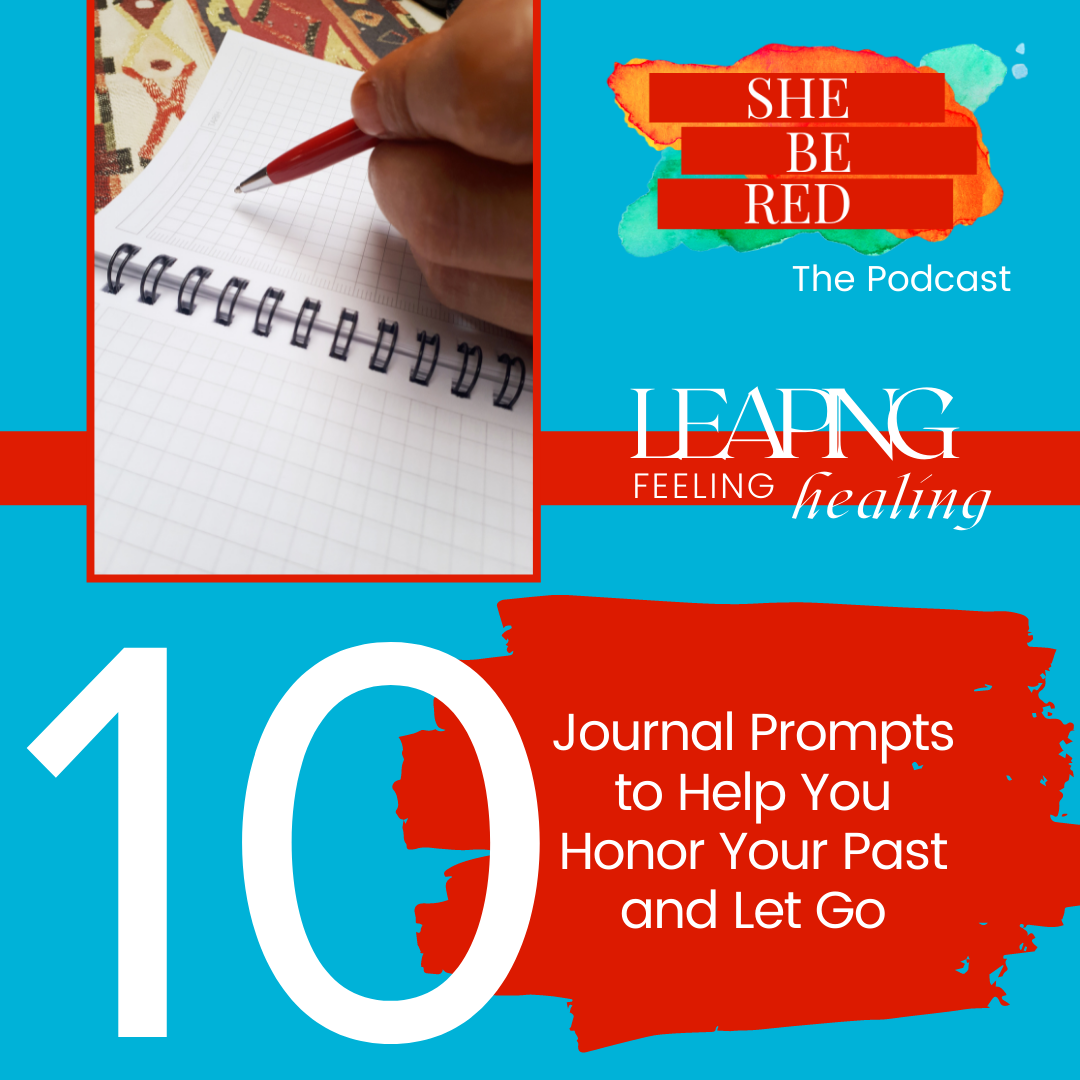Apple Podcast | Spotify
The Leap of Faith
Nobody gets through life as a human being unscathed or without being traumatized in some way. We all have baggage, and we all have things we’re holding on to. As I’m doing my breath work and getting more in touch with myself, I’ve realized that I’m feeling a lot of pain, a lot of heaviness, and a lot of grief. There are things from my past that I need to process so I can look to the future to build something and move on.
That’s what I want to help you do in this episode. I want to help you process some of your emotions, to honor your past and grieve for it. To make sure you don’t look back in however many years’ time and wish you’d let go.
When you go into a state of uncovering and try to come to terms with the things you’ve been through, the natural urge is to push them down, to avoid the pain. So in this episode, I’m going to walk you through some prompts and some things to think about so you can go from this idea of pain and avoidance to a place where you can hold space for your feelings and have compassion for your past self.
I use journaling as a mental health tool to help me get grounded, but I know that a lot of people struggle with what to write about when they’re starting out. That’s why, in this episode, I’m giving you some questions to ask yourself to guide you on your path to healing.
When it comes to journaling, there are lots of misconceptions, including that it’s going to take you a long time. But there are so many different types of journaling, from pen and paper, typing, and online journaling to speaking aloud, recording yourself, and creating video logs. Consider this your invitation to find what feels good for you.
What You’ll Hear Me Talk About in This Episode
The effects of the global pandemic
How your past has an impact on your future
Curiosity and the unearthing process
Pain and avoidance
The importance of holding space for your past
Journaling prompts
Compassion
Preconceptions about journaling
Different types of journaling
Kintsugi (the Japanese art of repairing broken pottery)
Your past self
Main Takeaways from My Experience
Nobody can train for a global pandemic, and nothing can prepare you for how it’s going to affect you emotionally.
Nobody gets through life unscathed or without being traumatized in some way.
When you start unlocking some of the things that have been trapped in different parts of your body, it’s an unearthing process; it’s like saying hello to the body that carried you through so much while remembering the things you’ve been through.
You should have compassion for your past self; in your past self, you’re not your future self, and your current self carries your past self.
Grinding should become grounding.
It’s so important to process your emotions, to honor your past and grieve for it so you can look to the future and build something that feels good.
Resources
Evermore, Willow and Marjorie - songs by Taylor Swift
#99 Psych-K - An Interview with Elli Richter - The Human Design Podcast
Inner Child Journaling - course by Alex Elle
After the Rain: Gentle Reminders for Healing, Courage, and Self-Love - book by Alex Elle
“Bless the thing that broke you down and cracked you open because the world needs you open” - quote by Rebecca Campbell
I would love to know how you found this workshop-style episode and if it was helpful. Would you like more of these kinds of episodes? If so, just shoot me a quick message on Instagram @maddie_shebered and @shebered, or you can send me an email at connect@shebered.com. I’d love to hear from you and find out what you like to journal about!
TRIGGER WARNING: In this episode, I’m asking you to reflect on something in your past and to process it in a different way. This could be triggering for you. If you’re listening to this episode and you’ve been through something traumatic that you’re struggling to deal with, please go and seek help from a medical professional. This episode is all about sharing space with you as well as some prompts that I think could be really useful. It is not for someone who’s suffering and needs help to process a traumatic event.

